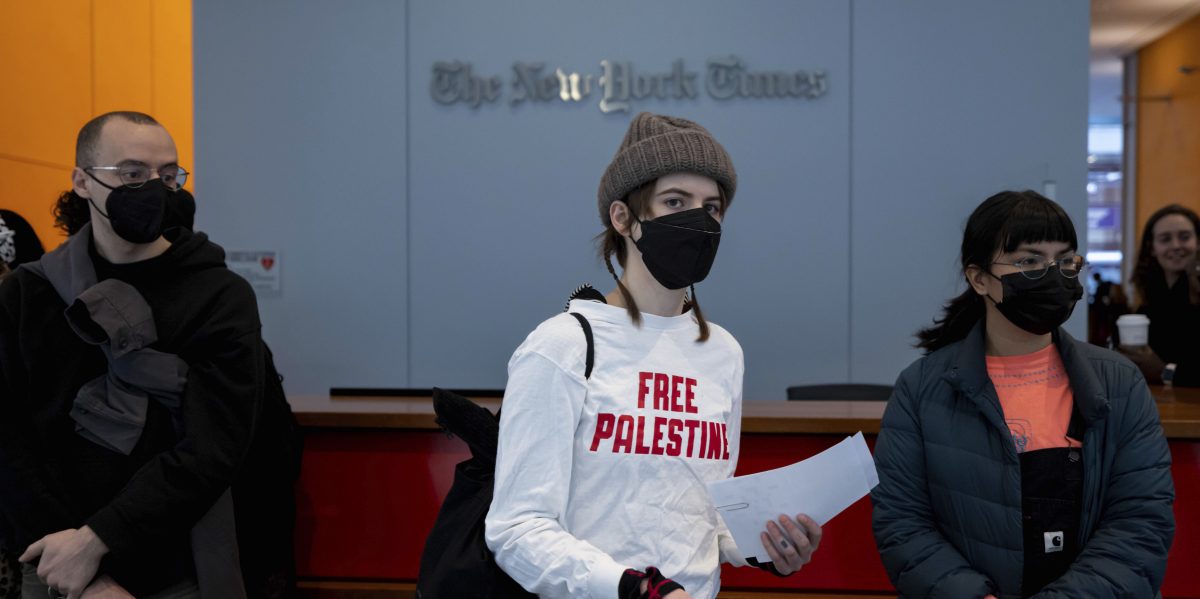The New York Times instructed journalists covering Israel’s war on the Gaza Strip to restrict the use of the terms “genocide” and “ethnic cleansing” and to “avoid” using the phrase “occupied territory” when describing Palestinian land, according to a copy of an internal memo obtained by The Intercept.
The memo also instructs reporters not to use the word Palestine “except in very rare cases” and to steer clear of the term “refugee camps” to describe areas of Gaza historically settled by internally displaced Palestinians, who fled from other parts of Palestine during previous Israeli–Arab wars. The areas are recognized by the United Nations as refugee camps and house hundreds of thousands of registered refugees.
While the document is presented as an outline for maintaining objective journalistic principles in reporting on the Gaza war, several Times staffers told The Intercept that some of its contents show evidence of the paper’s deference to Israeli narratives.
Almost immediately after the October 7 attacks and the launch of Israel’s scorched-earth war against Gaza, tensions began to boil within the newsroom over the Times coverage. Some staffers said they believed the paper was going out of its way to defer to Israel’s narrative on the events and was not applying even standards in its coverage. Arguments began fomenting on internal Slack and other chat groups.


There is a lot of Western guilt about failing the Jewish people in WW2. Seems that this extends to turning a blind eye when it comes to Israel.
Always has been. Zionism and the creation of the state of Israel are intrinsically linked to anti-semitism.
Not really. Western ruling elites supported Zionism after WW2 for the exact same reason they supported it before WW2 - to have a place they can dump the (so-called) “Jewish Problem.” The west is no less white supremacist and antisemitic today than they were in 1824 - the west is just desperate to distance itself from the atrocities it’s colonialist logic resulted in during WW2.
The important part is that this distancing shouldn’t prevent the actual mechanisms from working. Deals from being concluded, goods moving, weapons getting where they should. You know, all the old stuff.